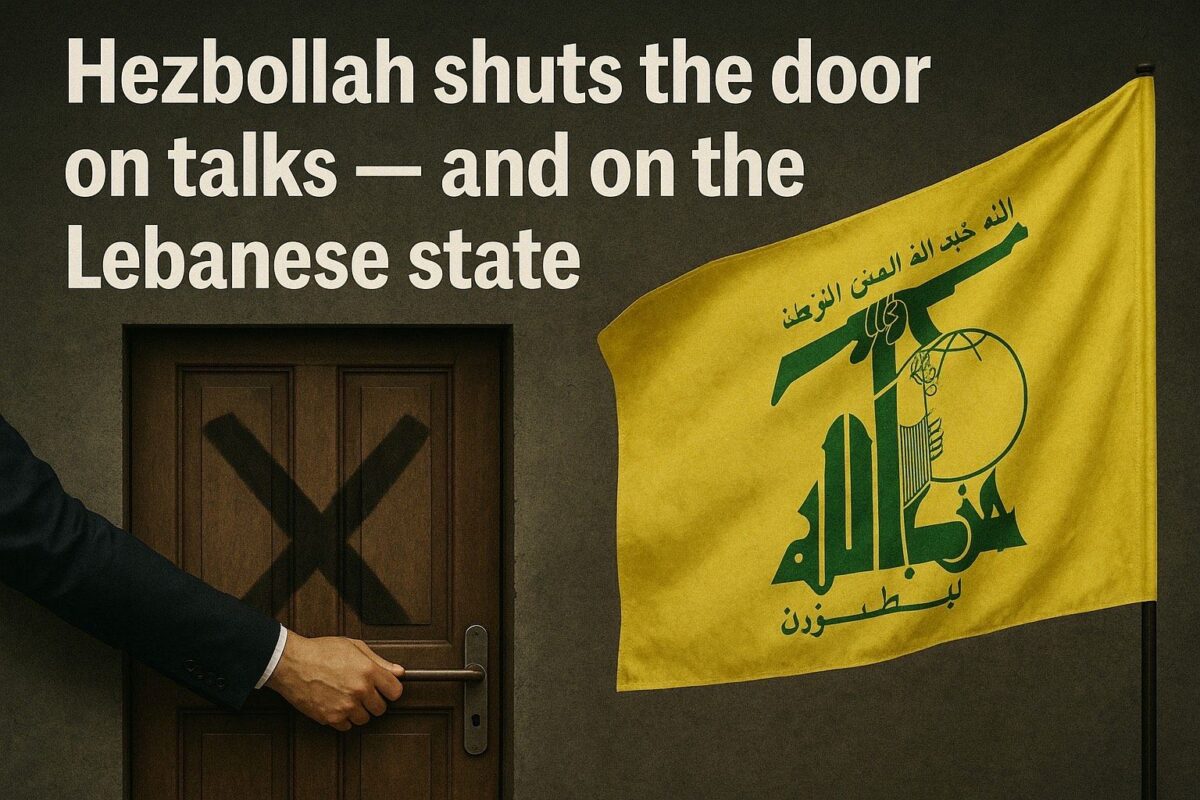
Driving the news:
Hezbollah’s Nov. 6 open letter tells Lebanon’s three presidents it will refuse new talks with Israel, demand strict ceasefire enforcement under the Nov. 27, 2024 truce, and keep the weapons question off the table — unless it’s discussed on Hezbollah’s terms inside a “national defense strategy.”
Why it matters (the critical read):
This is not a de-escalation plan; it’s a veto. Hezbollah asserts the right to decide when Lebanon negotiates, when it fights, and what’s negotiable — effectively outsourcing state prerogatives to a party militia.
By framing disarmament as “foreign pressure,” Hezbollah reverses the logic of sovereignty: the Lebanese state’s monopoly of force — the essence of UNSCR 1701 — becomes a bargaining chip, not a baseline.
The letter tries to freeze the status quo that privileges Hezbollah’s deterrent while raising the political cost for Beirut to engage in any security or political talks that might constrain it.
What they’re saying (and what it implies):
Ceasefire first, no talks: Hezbollah claims Lebanon strictly honored the 11/27/2024 truce while Israel violated it — and uses that claim to shut the door on negotiations rather than test compliance through verifiable mechanisms.
1701, selectively read: They invoke 1701 to demand Israeli withdrawal and restraint, but sidestep its core state-building requirement: a weapons monopoly south of the Litani under the Lebanese state, not a parallel command.
Arms “strategy,” not policy: Pushing the weapons file into an open-ended “national strategy” is a stall tactic that has historically produced no enforceable constraints on Hezbollah’s force posture.
Not “war or peace” — but still a veto: Claiming defense “outside the binary of war/peace decisions” is rhetorical cover for unilateral escalation rights that bypass constitutional decision-making.
Reality check:
Hezbollah treats state moves toward exclusive arms control as a “hasty mistake,” yet insists the state protect Hezbollah’s freedom of action. That’s asymmetric sovereignty.
Calling renewed talks a “trap” preemptively delegitimizes any forum where the state could press for border security arrangements, UNIFIL empowerment, or accountability for violations by all sides.
The letter’s posture locks in mutual impunity: Israel keeps leverage via overflights/strikes; Hezbollah keeps leverage via persistent armed presence — and Lebanese civilians pay the price.
State of play (for Beirut):
The three presidencies face a lose-lose: align publicly with Hezbollah’s no-talks line and forfeit diplomatic agency, or diverge and risk domestic confrontation and field friction.
Internationally, refusing talks while invoking 1701 will ring hollow with partners who view state control of arms as the starting point, not the end state.
What to watch:
Whether President Joseph Aoun, Speaker Nabih Berri, and PM Nawaf Salam echo this stance — or carve out technical security channels (ceasefire monitoring, Blue Line incidents) that chip away at the veto.
UNIFIL reporting and any expanded rules of engagement that might quantify violations on both sides and embarrass spoilers.
Donor signals: Will Washington/EU condition support on measurable steps toward state monopoly of force and credible border security?
Israeli responses: demands for force posture changes north/south of the Litani — and whether Hezbollah’s blanket refusal triggers tit-for-tat escalation.
The bottom line:
Hezbollah’s letter isn’t a roadmap to stability; it’s a political ceiling that keeps talks off-limits, ring-fences its arsenal, and subordinates the state to a permanent exception. If Lebanon wants real sovereignty — and real calm — it needs a process that restores state authority first, not last.







